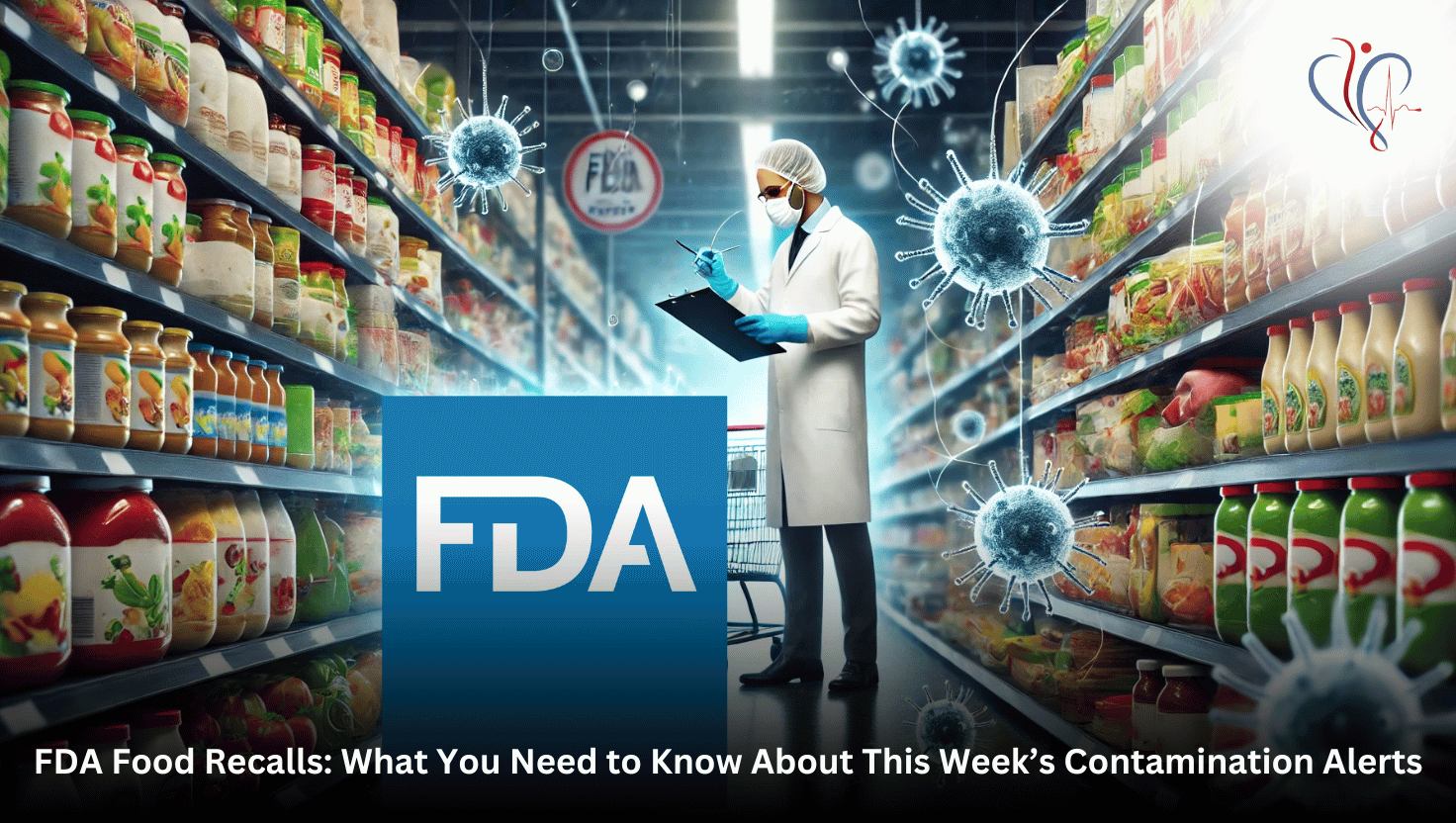Introduction: The Growing Concern of Food Safety
Food safety is a top priority for both regulatory agencies and consumers. The U.S. Food and Drug Administration (FDA) plays a crucial role in monitoring and recalling food products that may pose health risks. This week, several recalls have been issued due to contamination, undeclared allergens, and potential foreign materials found in popular food items.
At Champion Health System, we are committed to ensuring that our community stays informed about critical health risks. In this blog, we will cover:
- The latest FDA food recalls
- Health risks associated with contaminated products
- The dangers of foodborne illnesses
- Steps consumers should take
- Food safety tips to protect you and your family
Latest FDA Food Recalls
MadeGood Granola Bars Recall – Metal Contamination
What Happened?
The FDA has issued a recall for over 2 million MadeGood granola bars due to the risk of metal fragments in the product. These bars were sold nationwide and have been classified under a Class II recall, indicating that consumption could lead to temporary or medically reversible health consequences.
Health Risks:
- Metal contamination in food can cause choking, internal cuts, and digestive injuries.
- Symptoms may include abdominal pain, nausea, and difficulty swallowing.
Consumer Action:
- Check your pantry for MadeGood granola bars.
- If you have any affected products, return them for a full refund.
- If you experience symptoms after consuming the product, seek medical attention immediately.
Quaker Oats Pancake & Waffle Mix Recall – Undeclared Milk
What Happened?
The FDA has upgraded the Quaker Oats pancake and waffle mix recall to Class I status, its highest risk level, due to the presence of undeclared milk. This poses a significant health risk for individuals with milk allergies or lactose intolerance.
Health Risks:
- Consumption may cause anaphylactic shock, severe allergic reactions, and gastrointestinal distress.
- Individuals with milk allergies could experience swelling, hives, difficulty breathing, and vomiting.
Consumer Action:
- If you or a household member has a milk allergy, avoid this product.
- Return affected products to the store for a full refund.
- If you experience an allergic reaction, seek immediate medical attention.
Rising Risk of Foodborne Illnesses
Foodborne illnesses are increasing at an alarming rate. The FDA’s latest report states that in 2024:
- The number of foodborne illness cases doubled compared to the previous year.
- 98% of cases were linked to just 13 outbreaks.
- Hospitalizations and severe reactions have risen, affecting vulnerable populations.
Common Causes of Foodborne Illnesses
- Bacterial Infections (Listeria, Salmonella, and E. coli).
- Foreign Contaminants (metal, plastic, or glass fragments).
- Undeclared Allergens (milk, nuts, gluten, and soy).
Who Is Most at Risk?
- Infants and young children
- Elderly individuals
- Pregnant women
- People with weakened immune systems
Severe cases of foodborne illness can lead to organ failure, neurological damage, and long-term digestive disorders.
Avian Influenza & Food Safety: What You Need to Know
With the recent outbreaks of avian influenza (bird flu), consumers have raised concerns about the safety of poultry and eggs. The FDA and the Centers for Disease Control and Prevention (CDC) have provided clear guidance on food safety related to this issue.
Is Chicken Still Safe to Eat?
- Properly cooked poultry remains safe for consumption.
- The avian influenza virus does not survive cooking temperatures above 165°F.
- Strict FDA regulations ensure infected birds do not enter the food supply.
Consumer Precautions:
- Avoid raw or unpasteurized dairy products, which may carry contaminants.
- Ensure all poultry and eggs are cooked thoroughly.
- Practice safe food handling, such as washing hands and sanitizing surfaces.
How to Protect Yourself and Your Family
1. Stay Updated on Recalls
- Regularly check the FDA’s website for new food recall alerts.
- Follow trusted news sources and health agencies for updates.
2. Inspect Your Pantry
- Routinely review food products for expiration dates and recall notices.
- If you find an affected product, dispose of it immediately.
3. Follow Safe Food Handling Practices
- Wash all fruits and vegetables before eating.
- Cook meats to the proper internal temperatures.
- Prevent cross-contamination by keeping raw meats separate from ready-to-eat foods.
4. Know the Symptoms of Foodborne Illness
- Severe stomach pain, nausea, vomiting, fever, and diarrhea.
- If symptoms persist, seek medical care immediately.
Champion Health System: Committed to Your Well-Being
At Champion Health System, we are dedicated to keeping our community informed about health risks. Our team of medical experts offers:
- Comprehensive primary care and internal medicine services.
- Nutrition counseling to help you make safe and healthy food choices.
- Preventive screenings to detect health conditions early.
If you have concerns about foodborne illnesses, allergies, or digestive issues, our specialists are here to help.
Book an appointment today at Champion Health System.
Henderson, NC – 511 Ruin Creek Rd Suite 106 | 919-339-4077
Dunn, NC – 710 Erwin Rd | 910-304-1212
Oxford, NC – 1614 Williamsboro St | 855-618-2311
Visit championhealthsystem.com
Email md@championhealthsystem.com
Tags:
FDA Food Recalls, Food Contamination, Health Alerts, MadeGood Granola Bar Recall, Quaker Oats Recall, Food Safety, Foodborne Illness Prevention, Avian Influenza, Public Health Advisory, Champion Health System




